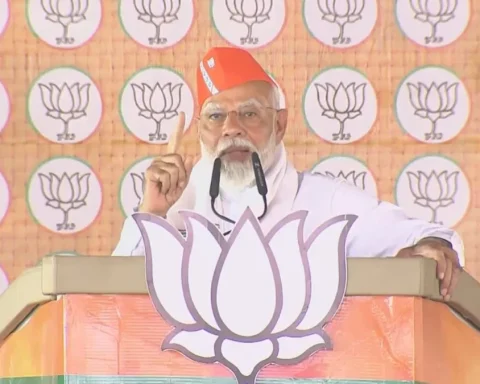Prime Minister Narendra Modi delivered a scathing critique reminiscent of the ‘vintage Congress culture’ following a petition signed by over 600 lawyers addressed to Chief Justice of India, DY Chandrachud, expressing apprehensions over the conduct of a “specific interest group” within the legal sphere.
Among the signatories were eminent legal personalities including senior advocate Harish Salve and Bar Council of India chairman Manan Kumar Mishra, who voiced their concerns regarding actions taken by this particular interest group.
PM Modi, in a social media post, remarked, “To browbeat and bully others is vintage Congress culture. Five decades ago, they clamored for a ‘committed judiciary,’ shamelessly demanding commitment for their selfish interests, yet shirking commitment towards the nation. It’s no surprise that 1.4 billion Indians are rejecting them.”
In response to PM Modi’s statements, Congress leader Jairam Ramesh countered, accusing the Prime Minister of a decade-long campaign of division, distortion, diversion, and defamation. Ramesh dismissed Modi’s assertion about the rejection of Congress, asserting that “1.4 billion Indians are waiting to give him a befitting reply very soon.”
Taking aim at Modi’s recent actions, Ramesh criticized the Prime Minister’s purported attack on the judiciary under the guise of defending it, labeling it as the epitome of hypocrisy. He cited recent Supreme Court rulings, particularly regarding the Electoral Bonds Scheme, which the court declared unconstitutional, exposing them as a tool for coercion and intimidation to secure donations for the BJP.
Ramesh further accused Modi of prioritizing corruption over the welfare of farmers by failing to provide a legal guarantee for Minimum Support Price (MSP). He reiterated the narrative of Modi’s tenure being marked by divisive tactics and defamation.
The letter addressed to CJI Chandrachud by the lawyers highlighted concerns over undue pressure tactics employed by a “special group” to influence judicial outcomes, especially in cases involving political figures and allegations of corruption. The group also accused this interest group of fabricating false narratives about judges and the court, as well as engaging in attacks on judicial integrity.
Moreover, the lawyers pointed out the strategic timing of these tactics, often coinciding with significant national events such as elections. They drew parallels with similar occurrences in 2018-19, referring to them as ‘hit and run’ activities aimed at manipulating public opinion.
The concerns raised by the legal fraternity underscored the importance of maintaining the autonomy and integrity of the judiciary, free from external influences or pressures. As the debate intensifies, the spotlight remains on the fundamental principles of justice and fairness within the Indian legal system.











